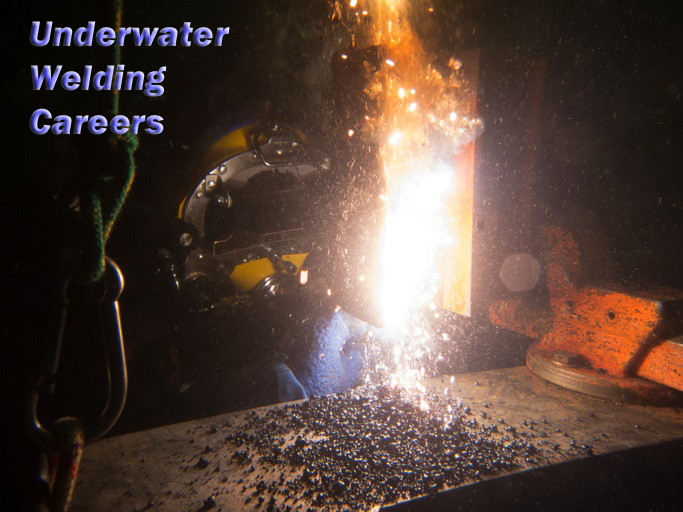
Underwater Welding Careers
This isn’t your average nine-to-five. Underwater welding is an exciting and rewarding career choice, but it’s not for the faint of heart. If you’re an adventure-seeking individual and in peak mental and physical health, learn what a career as a commercial underwater welder entails and how much you can expect to earn.
What is Underwater Welding?
Underwater welding is essentially what it sounds like – welding while you’re submerged beneath the water. You will even use the same basic equipment and techniques. Underwater welding is mostly used for maintaining and repairing fully or partially submerged marine structures.
Your day-to-day tasks may differ, but on a typical day, you’ll probably report for duty at the dock and wait for a transport vessel to take you to the worksite. Once you arrive at the site, you can expect to suit up and head into the water with your gear. Once submerged, you’ll complete the necessary repairs/welds needed at that specific site and begin making your ascent toward the surface.
Types of Underwater Welding
What’s the difference between dry welding and wet welding?
Dry Welding
Dry welding is when the welder stays dry under the water in a hyperbaric chamber. The dry atmosphere ensures higher quality and reliability – but it comes with a cost. Hyperbaric chambers are pricey, and you may not always have access to them. Diver welders must be trained to rely on wet welding when dry welding isn’t an option.
Wet Welding
If you’re curious how underwater welding works (welding in water without getting electrocuted), the answer is the thick layer of gas bubbles that the electrode‘s flux creates to cover the weld. The gas bubbles shield the electricity from water and other corrosive or oxidizing gasses. The process is actually quite similar to welding on land.
Underwater Welding Careers
Are you interested in a career as an underwater welder? Most underwater welders are trained professional welders first before becoming certified divers. You must undergo training from an accredited school for commercial diving to become an underwater welder.
Underwater welders fit into two categories, offshore and inland. You’ll have to decide which is best for you. Offshore welders often travel and work oil rigs, large pipelines, and marine vessels. Inland welders don’t travel as often and usually work in lakes, rivers, or ponds.
Underwater Welding Salary
Salary is usually based on the following:
• Diver Experience
• Employer
• Location
• Depth of the dive
Similar to other professions, the more experience you have, the more earning potential you’ll have. Rookies will often get the “less glamorous” jobs, while the veteran welders will get paid higher and (may) have an easier gig.
According to the Bureau of Labor Statistics, underwater welders earn an average annual salary of $54,750. The lowest percentile (10%) earns an annual average of $30,810, while the top
percentile (90%) can make upwards of $100,000.
There are options to grow with underwater welding, and it’s proven to be one of the most lucrative jobs you can get without a college degree.
